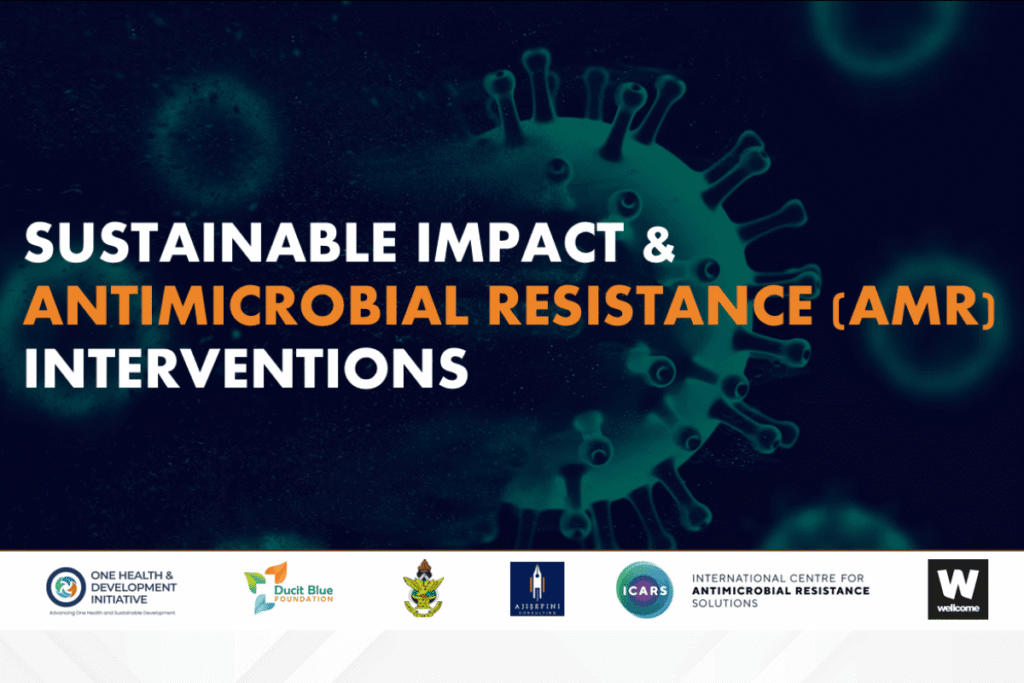
Addressing AMR in LMICs requires sustainable, context-specific interventions that address the root causes of resistance while creating resilient health systems that can adapt to future challenges. Similarly, interventions in addressing AMR require a multi-sectoral and long-term approach to achieve sustainable results.
Recognizing the urgent need for sustainable AMR interventions, the International Centre for Antimicrobial Resistance (ICARS) has mandated One Health and Development Initiative to lead a consortium of researchers and professionals to implement the AMR and Sustainable Impact project. Through this collaboration, we will be working with the Ducit Blue Foundation and researchers from the Kwame Nkrumah University of Science and Technology Ghana and Bayero University Nigeria to develop a comprehensive resource guide that outlines practical strategies and best practices for ensuring the long-term sustainable impact of AMR solutions across human, animal, and environmental health sectors in LMIC settings.
Through this project, funded by the Wellcome Trust, we aim to:
- Analyze existing sustainability frameworks from other sectors, such as climate-resilient farming, and assess their applicability to AMR interventions in LMICs.
- Evaluate the long-term effectiveness of AMR interventions by identifying key barriers, enablers, economic sustainability factors, and resource efficiency considerations.
- Provide practical examples of sustainable frameworks that have successfully supported long-term interventions in LMICs and can be adapted for AMR solutions.
- Integrate economic and behavioural change principles to ensure financial continuity, efficient resource allocation, and adopting proven behaviour change models in AMR programs.
Addressing AMR requires an all-encompassing approach, and this project offers a significant step toward adapting sustainability to AMR interventions. By bridging gaps in knowledge, policy, and practice, we aim to create a blueprint that will guide future AMR strategies in LMICs, ensuring they are effective and enduring.
Stay tuned for updates as we embark on this remarkable project towards sustainable solutions for antimicrobial resistance. We appreciate the support of the International Centre for Antimicrobial Resistance Solutions in promoting efforts to tackle AMR and advance global health security.





